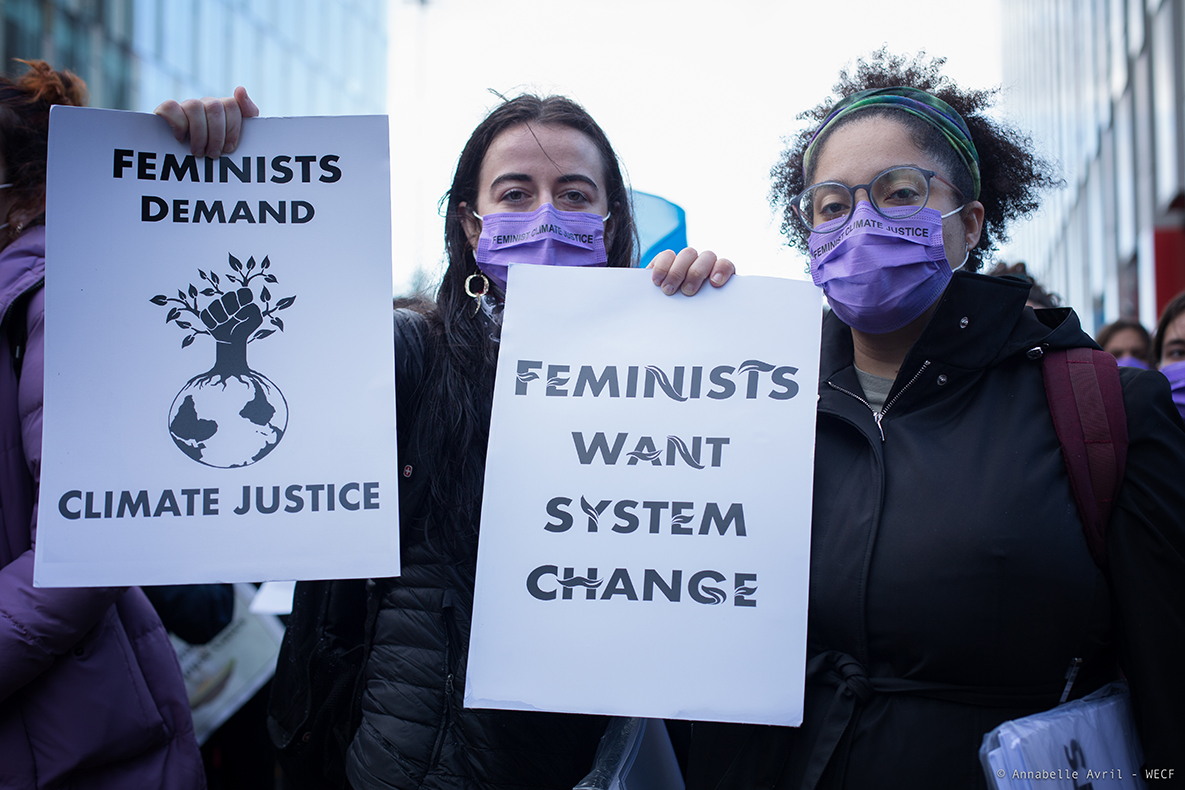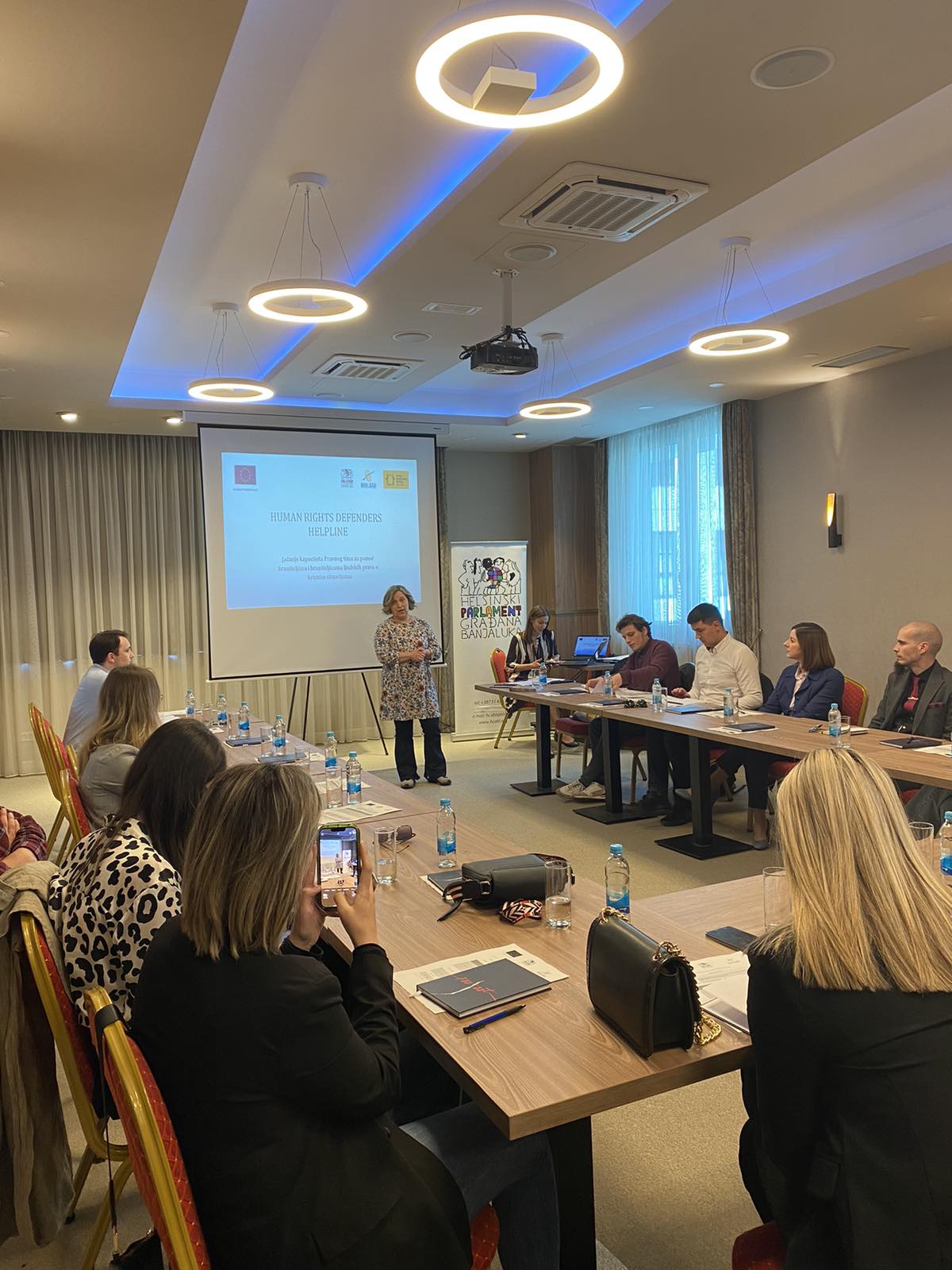A new report shows how feminism can be a powerful tool in the fight against climate change
By 2050, climate change could result in 158 million more women and girls in poverty and another 236 million facing the challenges of hunger. The climate crisis encourages an increase in conflicts and migrations in the world, but also exclusive political rhetoric against the rights of women, refugees and other vulnerable categories.
Those negative trends – and ways to overcome them – are outlined in a new report titled “Feminist Climate Justice: A Framework for Action” by UN Women.
The report shows how crises around the world, from economic inequality to geopolitical gridlock, are aggravated by climate change and have a huge impact on women and girls. It calls for a clear vision of feminist climate justice that integrates women’s rights into the global fight against environmental catastrophe.
The feminist climate justice vision is a world where everyone can enjoy the full range of human rights, without discrimination, and thrive on a planet that is healthy and sustainable. The report explains that vision in four parts:
1. Recognition of women’s rights, work and knowledge
Policies must recognize that women can offer unique knowledge and expertise. Women and girls around the world have been at the forefront of climate activism and have used various methods to protect the environment and counter harmful exploitation projects. Women farmers have also formed cooperatives and groups to share their work and increase their productivity and income.
Policies should be built on these successes while recognizing that women bear a disproportionate responsibility for care, that they have fewer economic resources than men, and that they have lower levels of literacy and less access to technology. These inequalities are aggravated by climate change.
The existing burden of unpaid family care is aggravated when food prices rise due to poor harvests or when family members’ health needs increase amid rising temperatures. Girls are more likely to drop out of school in drought-prone areas. Governments must ensure that the needs and rights of women and girls are integrated into policies for disaster response, gender-based violence, food production, the economy, social discrimination and other topics that intersect with the climate crisis.
2. Redistribution of economic resources
Reversing climate change requires shifting resources toward greater concern for people and the planet, the report says. Policies must ensure that the transition to green agriculture helps women in employment opportunities, education and technology. Publicly funded social protection systems should support the economic and social well-being of women and girls and their resilience to climate change.
3. Representing women’s voices
Human rights defenders, feminist groups and others who advocate for a gender-sensitive approach to climate change must participate during the creation of environmental protection policies at all levels. Currently, women are underrepresented in ministries of environmental protection in almost all countries. While the participation of women in national delegations to climate conferences increased from 30 to 35 percent from 2012 to 2022, the share of delegations led by women fell slightly from 21 to 20 percent over the same period.
4. Correcting inequalities and historical injustices
Financial commitments to combat climate change must focus on the people and countries most at risk. The response to the climate crisis will require addressing existing inequalities and historical injustices. One example is the issue of climate debt: the fact that since 1850 countries in the global north have been responsible for 92 percent of the world’s excess emissions. To address this imbalance, the report calls on rich countries to meet their climate funding commitments and ensure that funds go to the most vulnerable countries and local women’s organizations.
Although the loss and damage fund was agreed at the 2022 COP conference, contributions are voluntary and no mechanism has been established to hold rich countries accountable for historical environmental damage and its consequences, such as the loss of land, housing and crops due to extreme weather conditions.
However, financial compensation is only one part of the agenda: rich countries must also find answers to the non-economic consequences of climate change, such as increased levels of gender-based violence and unpaid care work, and the displacement of people resulting in the loss of cultural heritage and knowledge.
How to proceed?
The COP28 climate conference is a key milestone for countries to become accountable for their climate actions. At that conference, as in all other places where climate policy is discussed and implemented, leaders and policymakers must ensure that their responses to environmental challenges also integrate the needs and rights of women and girls around the world.
Working with partners, a number of organizations plan to develop a new tool, the Gender Equality and Climate Policy Scoreboard, for systematic monitoring of gender-sensitive national climate policies, which will create a strong foundation for future gender-inclusive climate policy. It is crucial that feminist goals continue to be integrated into the global response to the climate crisis.
Source: https://reliefweb.int/
Photo: Annabelle Avril, taken from wedo.org.





